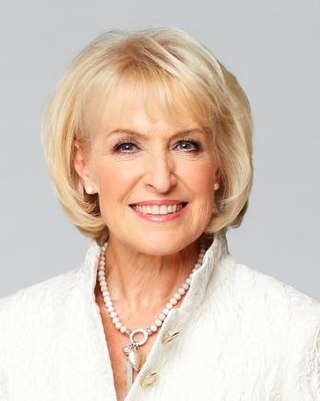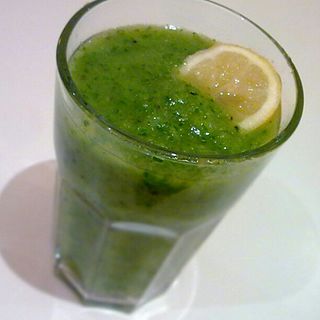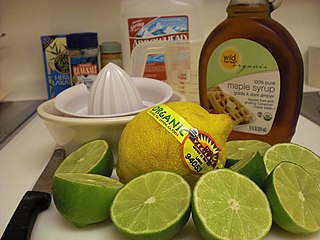Weight Watchers or WW may refer to:
- Weight Watchers (diet), a comprehensive weight loss program and diet
- WW International, the company producing the Weight Watchers diet
Weight Watchers or WW may refer to:
Dieting is the practice of eating food in a regulated way to decrease, maintain, or increase body weight, or to prevent and treat diseases such as diabetes and obesity. As weight loss depends on calorie intake, different kinds of calorie-reduced diets, such as those emphasising particular macronutrients, have been shown to be no more effective than one another. As weight regain is common, diet success is best predicted by long-term adherence. Regardless, the outcome of a diet can vary widely depending on the individual.
Diet may refer to:

The Atkins diet is a low-carbohydrate fad diet devised by Robert Atkins in the 1970s, marketed with claims that carbohydrate restriction is crucial to weight loss and that the diet offered "a high calorie way to stay thin forever".

A fad diet is a diet that is popular, generally only for a short time, similar to fads in fashion, without being a standard dietary recommendation, and often making unreasonable claims for fast weight loss or health improvements; as such is often considered a type of pseudoscientific diet. Fad diets are usually not supported by clinical research and their health recommendations are not peer-reviewed, thus they often make unsubstantiated statements about health and disease.
WW may refer to:

Low-carbohydrate diets restrict carbohydrate consumption relative to the average diet. Foods high in carbohydrates are limited, and replaced with foods containing a higher percentage of fat and protein, as well as low carbohydrate foods.

WW International, Inc., formerly Weight Watchers International, Inc., is a global company headquartered in the U.S. that offers weight loss and maintenance, fitness, and mindset services such as the Weight Watchers comprehensive diet program. Founded in 1963 by Queens, New York City homemaker Jean Nidetch, WW's program has three options as of 2019: online via its mobile app and website, coaching online or by phone, or in-person meetings.

In nutrition, diet is the sum of food consumed by a person or other organism. The word diet often implies the use of specific intake of nutrition for health or weight-management reasons. Although humans are omnivores, each culture and each person holds some food preferences or some food taboos. This may be due to personal tastes or ethical reasons. Individual dietary choices may be more or less healthy.

Rosemary Jean Neil Conley CBE, DL is an English businesswoman, author and broadcaster on exercise and health. Conley authored a low-fat diet and exercise programme, The Hip & Thigh Diet in 1988, which sold more than two million copies. However, her spot theory of fat reduction which claims people can lose fat specifically from the hips and thighs has no scientific basis.
Enviga is a Nestea carbonated canned green-tea drink. Enviga is a trademark of Nestlé licensed to Beverage Partners Worldwide, a joint venture between The Coca-Cola Company and Nestlé. It is available in three flavors: Green Tea, Tropical Pomegranate, and Mixed Berry. According to Coca-Cola, Enviga burns 60 to 100 calories per three 12-oz.(330 ml) cans due to its high EGCG and caffeine content. This is disputed by some researchers and public advocates.
Detoxification is a type of alternative-medicine treatment which aims to rid the body of unspecified "toxins" – substances that proponents claim accumulate in the body over time and have undesirable short-term or long-term effects on individual health. Activities commonly associated with detoxification include dieting, fasting, consuming exclusively or avoiding specific foods, colon cleansing, chelation therapy, certain kinds of IV therapy and the removal of dental fillings containing amalgam.

A very-low-calorie diet (VLCD), also known as semistarvation diet and crash diet, is a type of diet with very or extremely low daily food energy consumption. VLCDs are defined as a diet of 800 kilocalories (3,300 kJ) per day or less. Modern medically supervised VLCDs use total meal replacements, with regulated formulations in Europe and Canada which contain the recommended daily requirements for vitamins, minerals, trace elements, fatty acids, protein and electrolyte balance. Carbohydrates may be entirely absent, or substituted for a portion of the protein; this choice has important metabolic effects. Medically supervised VLCDs have specific therapeutic applications for rapid weight loss, such as in morbid obesity or before a bariatric surgery, using formulated, nutritionally complete liquid meals containing 800 kilocalories or less per day for a maximum of 12 weeks.
Nutrisystem is a commercial provider of weight loss products and services headquartered in Fort Washington, Pennsylvania.
The South Beach Diet is a popular fad diet developed by Arthur Agatston and promoted in a best-selling 2003 book. It emphasizes eating food with a low glycemic index, and categorizes carbohydrates and fats as "good" or "bad". Like other fad diets, it may have elements which are generally recognized as sensible, but it promises benefits not backed by supporting evidence or sound science.

Master Cleanse is a modified juice fast that permits no food, substituting tea and lemonade made with maple syrup and cayenne pepper. The diet was developed by Stanley Burroughs, who initially marketed it in the 1940s, and revived it in his 1976 book The Master Cleanser. Proponents claim that the diet tones, reduces and cleanses the body, allowing the body to heal itself. There is no evidence that the diet removes any toxins or that it achieves anything beyond temporary weight loss, followed by rapidly regaining the lost weight.

I Used to Be Fat is an MTV reality series about overweight teens striving to achieve weight loss through means of diet and exercise. Each episode follows one teenager who is paired with a motivational personal trainer. The trainer teaches them new exercise and eating habits over a few months while offering emotional support. Documented students share their personal trials and tribulations in the series.
KE diet, also known as feeding tube diet, is a fad diet in which an individual is fed a proprietary mixture through a feeding tube for a specific number of days. The dieter does not eat anything while on the diet. It has also been called the "Feeding Tube" diet in the United States.
Weight Watchers or WW is a commercial program for weight loss based on a point system, meals replacement and counseling.
Kurbo is a digital therapeutics program focused on sustainable healthy eating for children and teenagers. The program tracks and manages nutrition, exercise and weight of adolescents. It operates through a mobile application and a website, providing health coaching from weight loss and behavior change professionals to tackle childhood obesity.